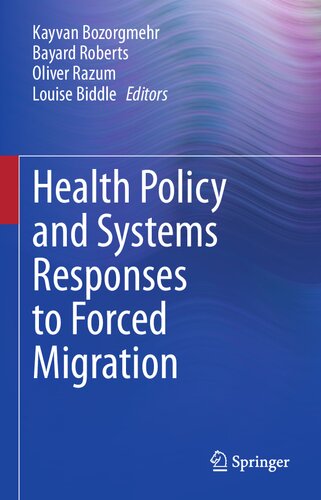

Most ebook files are in PDF format, so you can easily read them using various software such as Foxit Reader or directly on the Google Chrome browser.
Some ebook files are released by publishers in other formats such as .awz, .mobi, .epub, .fb2, etc. You may need to install specific software to read these formats on mobile/PC, such as Calibre.
Please read the tutorial at this link: https://ebookbell.com/faq
We offer FREE conversion to the popular formats you request; however, this may take some time. Therefore, right after payment, please email us, and we will try to provide the service as quickly as possible.
For some exceptional file formats or broken links (if any), please refrain from opening any disputes. Instead, email us first, and we will try to assist within a maximum of 6 hours.
EbookBell Team

4.0
96 reviewsForced migration has yet to be sufficiently addressed from the perspective of health policy and systems research, resulting in limited knowledge on system‐level interventions and policies to improve the health of forced migrants. The contributions within this edited volume seek to rectify this gap in the literature by compiling the existing knowledge on health systems and health policy responses to forced migration with a focus on asylum seekers, refugees, and internally displaced people. It also brings together the work of research communities from the fields of political science, epidemiology, health sciences, economics, psychology, and sociology to push the knowledge frontier of health research in the area of forced migration towards health policy and systems-level interventions, while also framing potential routes for further research in this area.
Among the analyses within the chapters:
Health Policy and Systems Responses to Forced Migration offers unique and interdisciplinary theoretical, empirical, and literature-based perspectives that apply a health policy and systems approach to health and healthcare challenges among forced migrants. It will find an engaged audience among policy makers and analysts, international organizations, scholars in academia, think tanks, and students in undergraduate programs or at the graduate level, for policy, practice, and educational purposes.